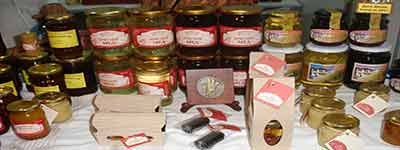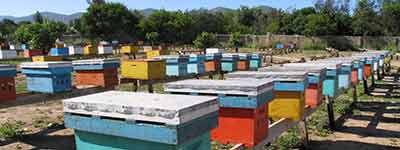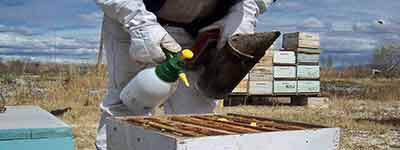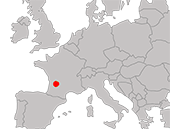Welcome to all
to the exciting world
of bees!
Invaluable source of information and services for all bee enthusiasts
|
Thanks to the indefatigable pollinating bees, beekeeping plays an essential role both in terms of agricultural yields and the maintenance of plant and tree biodiversity throughout the world. Scientists all agree that 35% of our food worldwide is dependent on their work! In addition bees provide different honeys as food supplements but also noble products used in apitherapy such as pollen, royal jelly, propolis, venom and wax. Via this website, the world's No. 1 portal for the apicultural sector, Apiservices offers beginner's articles, thousands of papers for professionals, scientific papers on the impact of pesticides on bees and databases on all topics related to bees, apiary techniques, treatments against apiary diseases, tricks against predators. Also listed are the coordinates of over a hundred beekeeping equipment suppliers for apiaries and honeyhouses, bee products, populated colonies, package bees and queens, veterinary drugs, service providers, apiculture trade unions and others. Welcome everybody! |
Last articles
Download PDF file >![]() < Preview PDF file
< Preview PDF file
The largest Himalayan honeybee produces mad honey by feed in on wildflowers and mainly rhododendron flowers. It is mainly found in countries like Nepal and Turkey.
Varroa destructor sucks the blood from both the adults and the developing brood, weakening and shortening the life span of bees.
By the President of the Republic of Greece at the inauguration of Notre Dame Cathedral on December 7, 2024, coinciding with the opening of the Beekeeping Conference at the 15th Honey Festival.
The number seven is often called a magical, fairytale number, and on the seventh anniversary of the proclamation of World Bee Day by the United Nations (UN).
The EU beekeeping sector faces significant challenges, marked by competition from low-cost imports, rising production costs, and widespread fraud.
Apimondia statement on honey fraud is in the news!
Over the last quarter century, increasing honey bee colony losses motivated standardized large-scale surveys of managed honeybees, particularly in Europe and the United States.
Artificial pollination systems can provide a security of yield even in poor pollination scenarios.
A major challenge for current global agricultural systems is to meet the growing food demand while reducing environmental impacts.
The Tropilaelaps spp. (Mesostigmata: Laelapidae), an ectoparasitic mite originally associated with such Asian giant honey bees as Apis dorsata, A. breviligula and A. laboriosa.
The high demand for honey bee queens has led commercial queen breeders to use incubators instead of the traditional method of incubating capped queen cells inside colonies.
This study aims to compare colony performance, Varroa mite development and infestation rates under two different management strategies: conventional and innovative.
Winter losses in honey bee colonies, Apis mellifera, raise concerns both for their critical role in crop pollination and for the sustainability of beekeeping.
This booklet (44 pages) contains four chapters on the theory underlying the design of breeding programs in honeybees.





































